Last week, fans on two continents had the rare chance to see a badminton game max out on points, with both the World Junior Championships and the Hong Kong Open including one match with a game that reached the ‘sudden death’ score of 29-all. But do we really need to prevent games from getting to 31 or beyond to keep down match duration or does it just prevent awesome matches from becoming historic ones?
The question we are asking in this poll concerns Law 7.5, which appears in the Laws of Badminton as follows:
7.2 A game shall be won by the side which first scores 21 points, except as provided in Law 7.4 and 7.5.
…
7.4 If the score becomes 20-all, the side which gains a two point lead first, shall win that game.
7.5 If the score becomes 29-all, the side scoring the 30th point shall win that game.
The question itself is:
Should badminton games continue indefinitely, without a ‘sudden death’ deciding point at 29-all?
Click here to proceed immediately to the poll and cast your vote
Even before proceedings got underway and games started reaching 30 points in Hong Kong and Markham, this question had been raised on the air during China Open commentary by Gill Clark and Morten Frost. It was this discussion – between two experts who had each done commentary on major tournament finals in 2006 and 2014 that involved games that reached 29-all – that provided the inspiration for this poll and the background you see here.
It is worth pointing out that this poll question belongs in the category of a curiosity. It was clear from the results of the poll we ran in 2014, and from the comments that followed, that Badzine readers were against further tinkering with the scoring system. On the other hand, all alternatives proposed since the current scoring system was adopted in 2006 would have affected all matches, whereas it bears examining how many matches even invoke the sudden death rule by producing a 29-29 scoreline in one game. In other words, would this be tinkering with a system that works or tweaking a system that could work even better?
Our analysis suggests that last week’s 30-point scores were far from representative in frequency, yet at the same time consistent with the pattern. To clarify, at the Hong Kong Open, men’s doubles 6th seeds Astrup/Rasmussen won their opening match 28-30, 21-19, 21-16, and the next day, Srikanth Kidambi won a match 18-21, 30-29, 21-18 (pictured top). At the World Juniors in Markham, there was also both a 30-28 game (pictured left), and a 30-29 one. In both events, the match with a 30-28 game was longer overall and none of the four were even close to the longest match of the tournament.
Our data set consists of 57,011 matches from 2014 to 2017, whose data was compiled by our resident statistician Lim Kai Yi. He counted matches from International Series and up and while not every last match was counted, we are sure that every 30-point score in the data set has been identified.
What we found was that having two 30-29 games in the same week is extremely rare, and having two 30-28 games happen in that same week is rarer still. In fact, we counted only 30 matches from 2014 to 2017 that included 30-29 games. Of these, Grand Prix Gold and International Series had the biggest contributions, while there was one at the 2015 World Championship (pictured right), 2 instances at the Superseries Premier Level and 3 in regular Superseries events.
30 matches out of 57,011 translates to a mere 0.053% of matches that are affected by Law 7.5. The closest the rate came to 1 match in 1,000 was in 2015, when out of 16,722 matches counted, 13 involved games that ran to 30-29.
Although there have been concerns that match length is increasing, it seems improbable that this could be exacerbated by letting such a miniscule percentage of matches run past 31 points. In fact, 17 of those 30 matches with 30-29 games were still completed in under an hour. The longest such match in those four years lasted just 1 hour and 25 minutes. In 2016, when the longest match on record ran to 2 hours and 41 minutes, the longest match with a sudden death took no longer than 68 minutes (pictured below).
The inevitable comparison with the tennis experience is revealing in a number of ways. One is that sets of interminable length in Grand Slam tennis events are not only long and intriguing, they are also candidates for legendary status, such as the 2009 Wimbledon final, which featured a 30-game fifth set. In badminton, a 30-29 game may be the highlight of a tournament or even a year, but it can hardly take its place in the record books if it just gets added to a short list of matches that all have an identical game score.
The choice taken by tennis is hardly even comparable in terms of the additional time required. Adding, say, 11 more rallies to finish a game at 36-34 instead of 30-29 takes far less time than adding 11 tennis games instead of a tiebreaker. In fact, tennis has no limit to the number of deuces so, any one game could theoretically already go on forever, even without the no-tiebreaker rule in the Grand Slam.
Of course, it’s one thing to make it possible for a match to set a record but it is really only likely to go down in the annals of the sport if the match is already the centre of attention. After all, that Federer-Roddick tennis match would not be half as memorable if it hadn’t involved two title contenders playing on centre court in the final.
Interestingly, badminton had a ‘sudden death’ match point decide a championship right in the first year the current scoring system was adopted, when Zhang Ning (pictured) beat Xie Xingfang to win the 2006 Japan Open final 21-11, 16-21, 30-29. But this type of high-profile match is extremely rare. In fact, only one of the 30 games we found that ended 30-29 from 2014 to 2017 happened in a match broadcast on the BWF Youtube channel. That was the 2014 Macau Open final when Edi Subaktiar / Gloria Emanuelle Widjaja of Indonesia beat Singapore’s Danny Bawa Chrisnanta / Vanessa Neo 21-15, 29-30, 22-20.
So we leave it up to our readers to judge. Is it worth letting an amazingly tight game continue and possibly break a record or is it best to leave things as they are and let the action on court determine whether one 30-29 game is more exciting than another?
We invite you to cast your vote in the following poll and please feel free to have your own say, using the comments section below.
Photos: Badmintonphoto
Data Compilation: Lim Kai Yi
![POLL – Do we really need ‘sudden death’? Last week, fans on two continents had the rare chance to see a badminton game max out on points, with both the World Junior Championships and the Hong Kong Open […]](http://www.badzine.net/wp-content/uploads/ngg_featured/20181115_1738_HongKongOpen2018_BP014022_rotator.jpg)
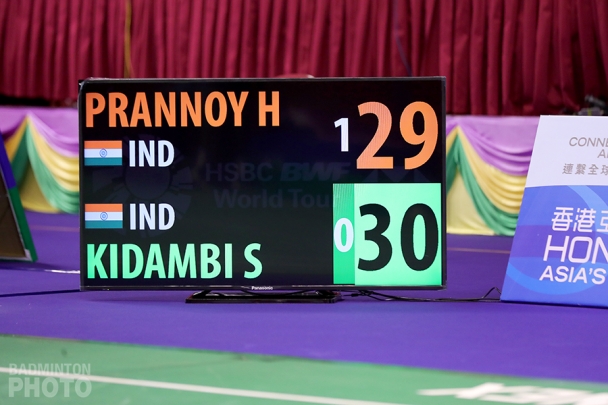
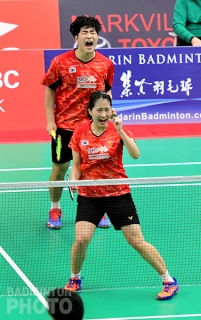

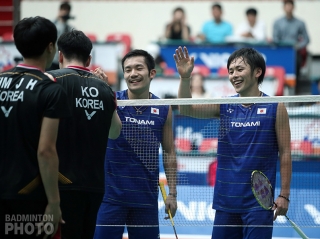
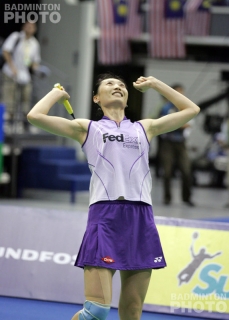
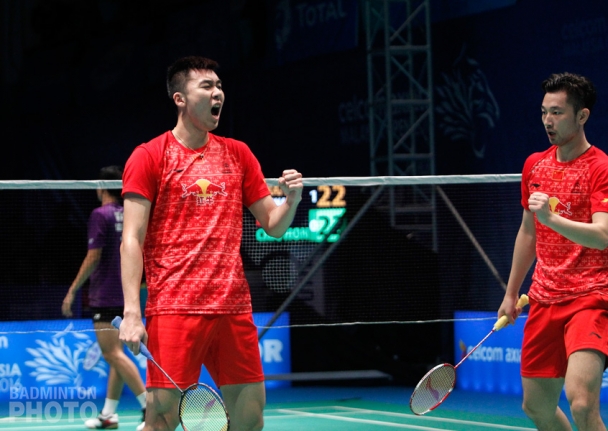

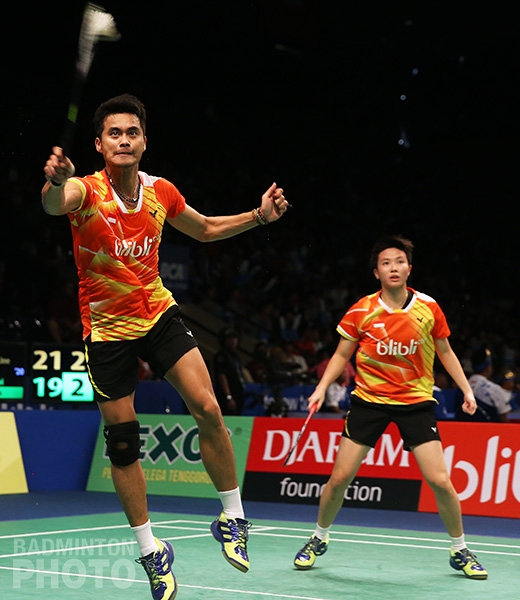

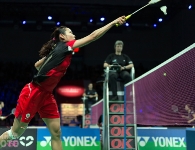



Leave a Reply